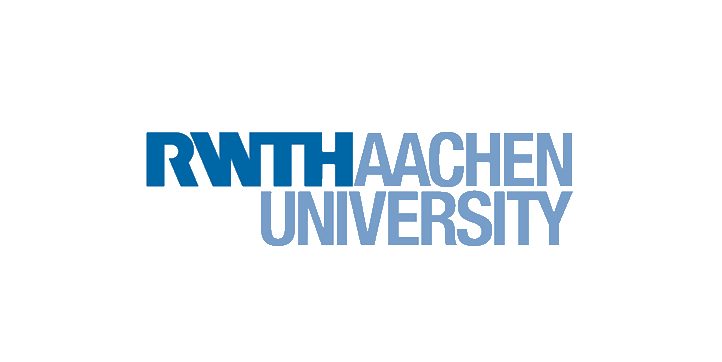RWTH: Success in the “Artificial Intelligence in Higher Education” initiative
RWTH receives funding for a network and an individual application in the federal-state initiative.
RWTH Aachen has successfully emerged from the federal and state funding initiative “Artificial Intelligence in Higher Education”. Both a joint project and an individual project are funded. With the funding initiative, which is endowed with around 133 million euros and reaches 81 universities across Germany, the federal and state governments are striving to develop the key technology of artificial intelligence (AI) more effectively across the university system.
AIStudyBuddy
The joint application “AIStudyBuddy: AI-based support for study planning” was submitted by RWTH as the applicant university together with the Ruhr University Bochum (RUB) and the Bergische Universität Wuppertal (BUW). The aim is to use modern AI technologies to to support the planning and reflection of individual study progresses. The focus is on two target groups: With the StudyBuddy, students receive a tool for informed and evidence-based planning of their studies over several semesters in the future. This is based on rule-based course plans as well as on course profiles determined by AI technology, which lead to successful degrees.
With BuddyAnalytics, course designers receive a tool that provides interactive visualizations and information for planning decisions such as competence-oriented curriculum development or course advice. The project combines the AI paradigms of data-based (process mining) and rule-based AI (answer set programming). With process mining, the actual study behavior is discovered and analyzed using data from campus, learning management and examination systems. It compares real study courses with the intended ones. As a result, the project network, supported by the RWTH by Professor Ulrik Schroeder, Dr. Malte Persike, Professor Gerhard Lakemeyer and Professor Wil van der Aalst, the evidence-based study monitoring,
bridgingAI
Professor Holger Rauhut, Professor Erhard Cramer, Professor Markus Strohmaier, Professor Saskia Nagel, and Professor Wil van der work in the project “bridgingAI: Building interdisciplinary bridges to AI” under the leadership of the RWTH Center for Artificial Intelligence and the technical direction of Professor Bastian Leibe Aalst, Professor Sebastian Trimpe, Professor Ulrik Schroeder and Dr. Malte Persike set about establishing interdisciplinary, future-oriented and technically secured competencies in the field of artificial intelligence (AI) for students of as many disciplines as possible. The RWTH is taking up an important challenge that many universities are currently facing. Scalable solutions are required
The bridgingAI project aims to enable students to evaluate, use and develop Artificial Intelligence sensibly and responsibly. A common competence base should enable students to actively shape science, industry and society in the AI age beyond their own specialist perspective. Establishing and securing cross-disciplinary AI competence is a strategic goal for RWTH Aachen as an interdisciplinary, integrated university for science and technology. bridgingAI aims to develop a bridging curriculum at the transition from Bachelor to Master for a variety of specialist disciplines.
In view of the diverse target groups, the micro-bachelor’s degree to be developed requires a scalable and at the same time standardized offer that is highly attractive for as many students as possible. The creation of all modules of the curriculum is therefore based on the premise of interdisciplinary cooperation and coproduction between several faculties. In the first expansion stage, the developed micro-bachelor will contain ten MOOCs (Massive Open Online Courses, i.e. digital learning modules), which enable an introduction to AI learning content from several starting levels. All MOOCs are published as Open Educational Resources and played out via the edX platform.
A total of 14 joint and 40 individual projects emerged successfully from the competition. A 32-member committee chaired by Dr. Andrea Grimm (Supervisory Board IBM Deutschland GmbH), Professor Gesche Joost (UdK Berlin) and Professor Manfred Prenzel (University of Vienna) selected the projects.

